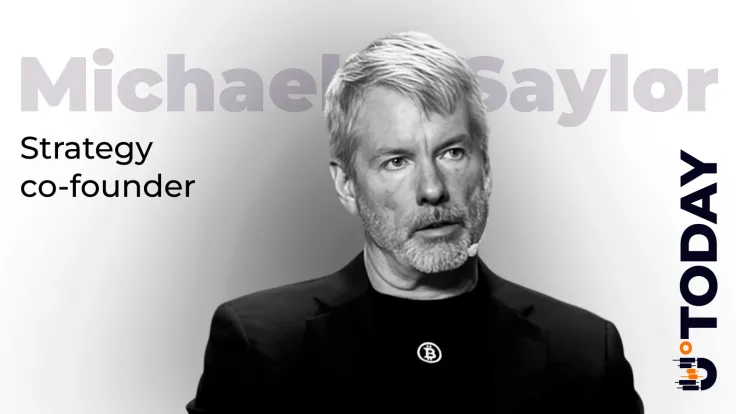Taiwan's Bold Move: Central Bank Explores Bitcoin Reserves, Pilot Program Underway

Taiwan's Premier and Central Bank have reportedly reached an agreement to thoroughly study Bitcoin as a potential strategic reserve asset. This initiative also includes drafting pro-Bitcoin regulations and piloting Bitcoin treasury holdings, commencing with already seized Bitcoin that is awaiting auction. The project is spearheaded by legislator Dr. Ju-chun Ko and has garnered support from Samson Mow, CEO of JAN3, a prominent Bitcoin technology company dedicated to accelerating Bitcoin adoption worldwide. This announcement, conveyed by JAN3, follows increasing discussions among Taiwanese lawmakers regarding the inherent risks associated with an overreliance on conventional reserve assets.
The push for Bitcoin integration gained momentum earlier in May when Dr. Ju-chun Ko urged the National Central Bank to evaluate the inclusion of Bitcoin within the country's strategic reserves. Ko highlighted the New Taiwan Dollar’s significant volatility, prevalent global inflation, and escalating regional geopolitical risks as critical motivations for exploring alternative reserve strategies. The New Taiwan Dollar has indeed experienced extreme fluctuations, with swings of up to 5% in a single day this year. Dr. Ko criticized Taiwan's substantial dependence on the U.S. dollar, emphasizing a perceived lack of financial resilience and advocating for Bitcoin's consideration as a vital component of Taiwan's broader financial strategy.
Currently, Taiwan's existing strategic reserves reportedly comprise approximately 423 metric tonnes of gold and a substantial $577 billion in foreign currency, with an overwhelming 92% of this foreign currency invested in U.S. Treasury bonds. Dr. Ko clarified that Bitcoin would not serve as a replacement for these established assets but rather as a complementary component. Its inclusion is intended to significantly enhance financial resilience through strategic diversification, mitigating risks associated with concentrating assets in a single currency or commodity.
This forward-thinking approach by Taiwan aligns with broader global trends, where several nations are exploring or implementing Bitcoin into their financial frameworks. In March 2025, former U.S. President Donald Trump notably signed an executive order to establish a Strategic Bitcoin Reserve, which absorbed over $17 billion in forfeited bitcoins. Other countries, such as Argentina and El Salvador, have also actively explored the integration of Bitcoin into their national reserves, citing its recognized potential as a hedge against inflation and a safeguard against centralized banking risks. Argentina's President Javier Milei, for instance, openly supports Bitcoin as a mechanism to combat inflation and reduce reliance on central banks. Dr. Ko referenced these international precedents during his Legislative Yuan speech in May, underscoring Bitcoin’s unique advantages, including its fixed supply and decentralized nature, which set it apart from traditional assets. He argued that even a modest allocation of Bitcoin could substantially improve Taiwan's preparedness against potential global currency shocks and widespread financial instability.
While a formal policy has not yet been enacted, reports from JAN3's social media indicate that the central bank intends to conduct comprehensive detailed studies and pilot BTC holdings using seized Bitcoin before considering any broader implementation. If successfully approved and implemented, Taiwan would position itself among the first Asian countries to either hold or pilot Bitcoin as a strategic reserve, marking a significant step in the region. This initiative also builds upon earlier regulatory developments, as Taiwan’s Financial Supervisory Commission had already begun permitting professional investors to purchase foreign Bitcoin and crypto ETFs back in 2024.
Recommended Articles
Bitcoin's Dire 29% Drop: VanEck Signals Seller Exhaustion Amid Market Carnage!

Bitcoin has suffered a sharp 29% price drop, but a VanEck report suggests seller exhaustion and a potential market botto...
Crypto Giants Unite: Nakamoto Inc. Acquires BTC Inc. & UTXO Management

Nakamoto Inc. (NASDAQ: NAKA) has completed its acquisitions of BTC Inc. and UTXO Management GP, LLC, finalizing merger a...
Bitcoin's Epic 50% Plunge: Is it a Quantum Attack or Market Rebalance?

Bitcoin's recent 46% decline has ignited a debate, with some citing quantum computing fears and others pointing to shift...
Goldman Sachs CEO Sparks Fury: 'Crypto Rebels' Advised to Relocate to El Salvador!

Goldman Sachs CEO David Solomon has delivered a sharp message to crypto advocates: adhere to U.S. financial regulations ...
Crypto Winter Confirmed: Saylor Sounds Alarm on Market Downturn

MicroStrategy's Executive Chairman Michael Saylor confirmed on Fox Business that the digital asset market has entered a ...
Milo's Monumental Leap: $100M in Crypto Mortgages & Record Home Loan

Milo, a Miami-based fintech firm, has surpassed $100 million in crypto mortgage originations, demonstrating a significan...
You may also like...
Boxing Shocker: Hitchins Illness Forces IBF Title Defense Cancellation

The IBF junior welterweight title defense between Richardson Hitchins and Oscar Duarte has been cancelled due to champio...
Arteta's Fiery Warning: Arsenal Stars Must Endure 'Noise' or Exit Title Fight

Arsenal manager Mikel Arteta has issued a strong message to his title-chasing squad, urging them to embrace the intense ...
Hollywood Heavyweights Clash: Mark Ruffalo Blasts James Cameron Over Studio Deals

Mark Ruffalo has openly challenged James Cameron's critique of Netflix's potential acquisition of Warner Bros. Discovery...
Sopranos Shocker! Michael Imperioli Claims Characters Would Be Trump Supporters

Michael Imperioli, star of “The Sopranos,” believes the show's characters would likely be Donald Trump supporters today,...
Nollywood Sensation Mercy Johnson-Okojie Tapped for Key Public Role in Nigeria!

Edo State Governor Monday Okpebholo has appointed Nollywood icon Mercy Johnson-Okojie as Special Adviser on Public Engag...
Malawi's President Mutharika Unleashes Sweeping Ban on Health Workers Amidst Corruption Battle!

President Peter Mutharika has issued a tough executive order in Malawi, banning public hospital employees from owning pr...
Tragic Medical Mystery: Woman Loses All Limbs After Devastating Dog Lick Sepsis

Manjit Sangha, 56, lost all her limbs after contracting severe sepsis, believed to be from a dog lick. After 32 weeks in...
Global Economic Jolt: Trump Vows 15% Tariffs After Supreme Court Defeat

Following a Supreme Court ruling declaring his tariff policy unconstitutional, President Donald Trump escalated his trad...